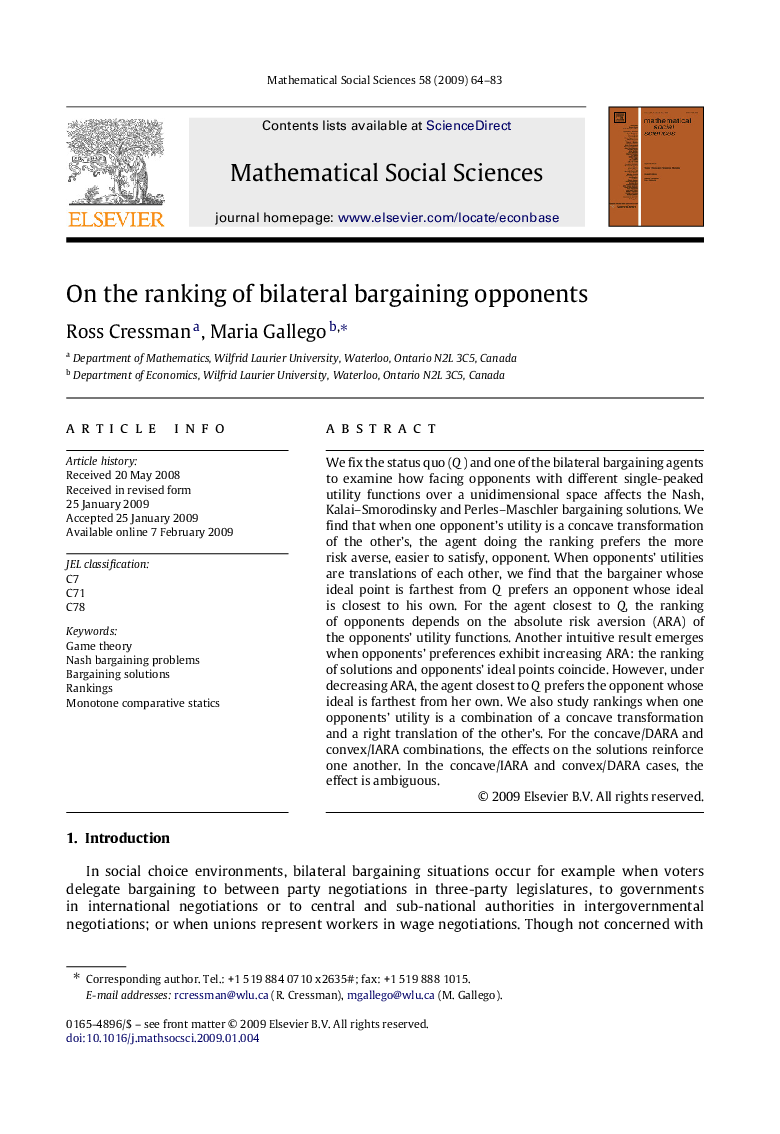| Article ID | Journal | Published Year | Pages | File Type |
|---|---|---|---|---|
| 973305 | Mathematical Social Sciences | 2009 | 20 Pages |
Abstract
We fix the status quo (Q) and one of the bilateral bargaining agents to examine how facing opponents with different single-peaked utility functions over a unidimensional space affects the Nash, Kalai-Smorodinsky and Perles-Maschler bargaining solutions. We find that when one opponent's utility is a concave transformation of the other's, the agent doing the ranking prefers the more risk averse, easier to satisfy, opponent. When opponents' utilities are translations of each other, we find that the bargainer whose ideal point is farthest from Q prefers an opponent whose ideal is closest to his own. For the agent closest to Q, the ranking of opponents depends on the absolute risk aversion (ARA) of the opponents' utility functions. Another intuitive result emerges when opponents' preferences exhibit increasing ARA: the ranking of solutions and opponents' ideal points coincide. However, under decreasing ARA, the agent closest to Q prefers the opponent whose ideal is farthest from her own. We also study rankings when one opponents' utility is a combination of a concave transformation and a right translation of the other's. For the concave/DARA and convex/IARA combinations, the effects on the solutions reinforce one another. In the concave/IARA and convex/DARA cases, the effect is ambiguous.
Related Topics
Physical Sciences and Engineering
Mathematics
Applied Mathematics
Authors
Ross Cressman, Maria Gallego,
